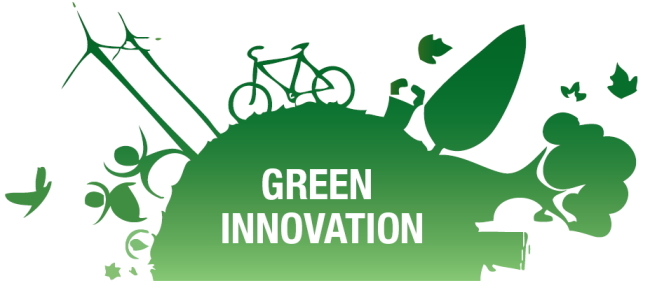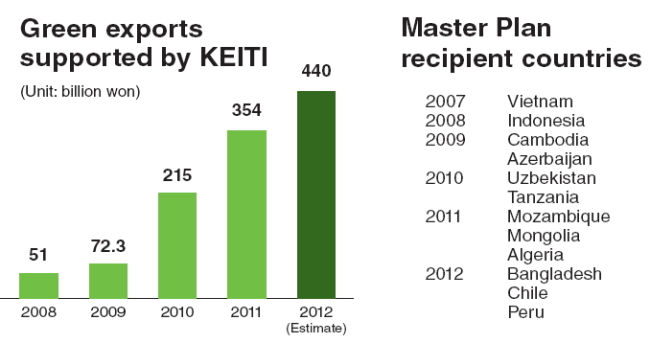
The Korea Herald, in collaboration with the Korea Environmental Industry & Technology Institute, is presenting a series of articles introducing small but promising environmental tech firms. The following is the first installment. ― Ed.
Though not as glamorous as smartphones, flat-screen TVs and hybrid cars, a new opportunity beckons for corporate Korea in sewage sludge, garbage and landfill gas.
Korean environmental companies, having accumulated technology and knowhow in the country’s rapid industrialization and efforts to clean up pollution, are beginning to take their skills to foreign markets.
From neighboring China to Algeria in North Africa, they are landing deals, some big and some small, which industry and government officials view as a hopeful sign for the country’s ongoing pursuit of a green economy.
“Environmental tech firms are a core pillar of Korea’s green-growth policy,” said Environmental Minister Yoo Young-sook. “The government, through various support programs and initiatives, has been assisting them to grow and go beyond the nearly saturated domestic market.”
In one of the major overseas deals clenched by local firms, Daewoo Engineering & Construction Co. signed a $500 million deal in June to restore a degraded river in Algeria.
The contract calls for cleaning an 18-kilometer section of El Harashi River, which flows through the North African country’s capital city of Algiers, and develop the riverside area for recreational and cultural facilities.
The deal is a byproduct of the Korean government’s Master Plan program, which envisions a Korean team of governmental and private specialists providing free-of-charge tailored solutions to under-developed or developing countries on their most pressing environmental concerns. Daewoo E&C was among the private-sector participants in the 2011 program for Algeria.

“It marks the first case that Korea’s river rehabilitation technology and knowhow, developed and strengthened in restoration of the Han in Seoul and other rivers, is being implemented overseas,” said Seok Sung-woo, an official at the Korea Environmental Industry & Technology Institute. The KEITI is the state-run agency that leads the Master Plan programs.
Though securing smaller deals, other companies are penetrating foreign environmental markets.
Coenbio Co. received orders worth 8.3 billion won ($7.3 million) from the northern Chinese province of Heilongjiang to treat contaminated soil with its microbial products.
A waste-sorting facility, developed by local firm Forcebel, has been installed in Japan’s Iwate Prefecture, which is struggling to clean up hills of debris from the catastrophic earthquake and tsunami in March 2011.
Such achievements, however, may be a distant dream for most local environmental firms struggling to survive in the domestic market.
“Most of the Korean environmental firms are tiny and cash-poor,” said Cho Soo-bong, CEO of Samho Green Investment, a venture capital firm, said in a forum. “The sector is failing to attract private investment, a major hindrance to its advancement.”
According to 2010 data, the average revenue of the companies stood at 1.6 billion won. They employ 6.3 workers on average. The domestic environmental market was valued at 44 trillion won at the end of 2009 and the exports of green products and services at 2.5 trillion won.
The government, however, is aiming high, under the national drive to grow the sector into a new growth driver.
According its 10-year roadmap for the green industry development unveiled last year, it wants Korea to join the ranks of the world’s top 10 green industry powerhouses by 2020, with total green revenues reaching 200 trillion won and exports 15 trillion won.
According to the Environmental Business International, a global think tank, the global green market was worth $796 billion in 2010 and is projected to grow an average of 3.2 percent annually to reach $1.86 trillion by 2020.
To help local firms to capture a piece of the lucrative market, the government, through the KEITI and other agencies, is offering them a package of support programs, ranging from policy loans, R&D funding to an one-stop service as their export agent.
In particular, the KEITI’s export assistance led to a fivefold increase in the total value of deals.
Overseas contracts clinched by local firms with support of the agency totaled 322 billion won in 2011. It represents a 522 percent increase from 2008, when the export amount stood at 51.8 billion won, the institute said.
By Lee Sun-young (milaya@heraldcorp.com)
-
Articles by Korea Herald









![[Hello India] Hyundai Motor vows to boost 'clean mobility' in India](http://res.heraldm.com/phpwas/restmb_idxmake.php?idx=644&simg=/content/image/2024/04/25/20240425050672_0.jpg&u=)









